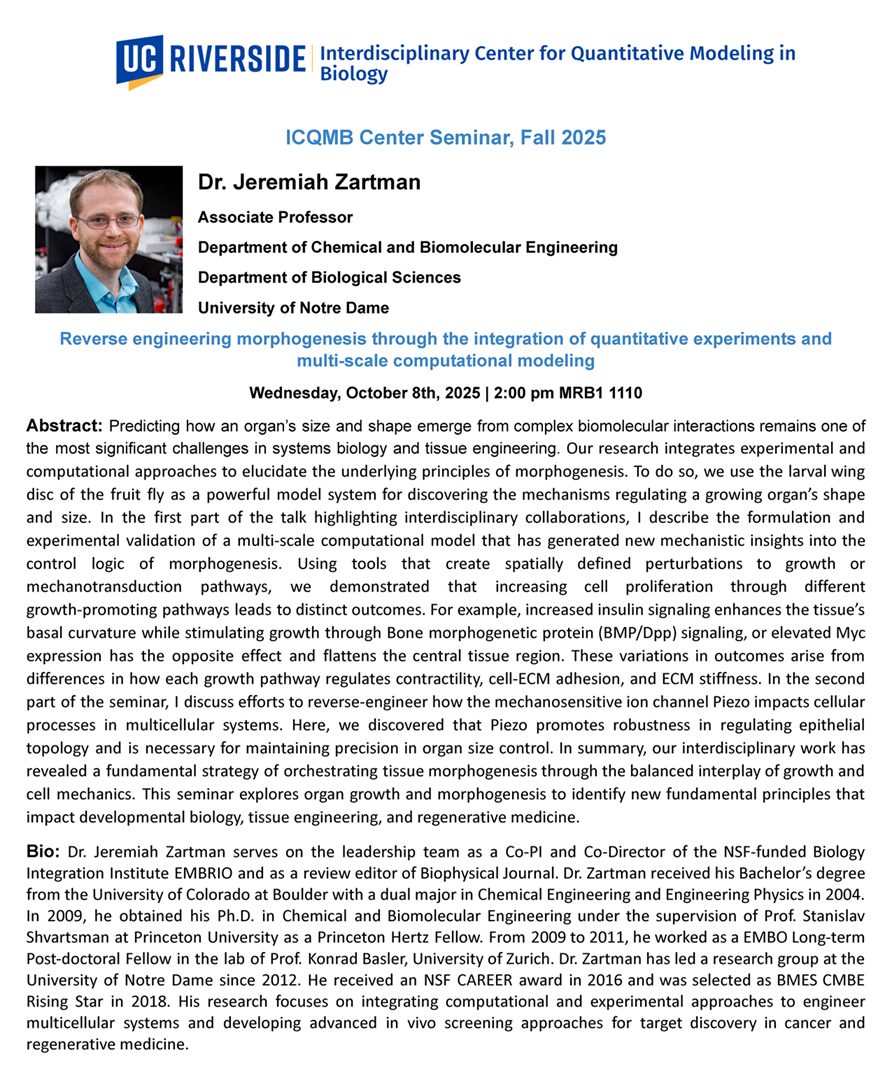The main long-term goal of the UC Riverside Interdisciplinary Center for Data-driven Modeling in Biology (ICDMB) is to develop comprehensive predictive data-driven models of complex biological systems. All projects at this center combine quantitative experiments, novel image analysis, modeling and statistical approaches, and build upon the mutually complementary strength of the researchers at UC Riverside with support from collaborators at other institutions.
Center News & Events
Sixth Biological Diffusion and Brownian Dynamics Brainstorm
Biological Diffusion and Brownian Dynamics Brainstorm 6 (BDBDB6) is an online workshop dedicated to exploring and informally discussing the latest experimental and theoretical advances in biological diffusion. This event will emphasize the Brownian Dynamics method and its applications in simulating biological macromolecules. Building on a tradition that began in 2007, the BDBDB series has been held periodically, with the most recent event taking place in 2021.
December 11th & 12th 2025
15th Annual Southern California Systems Biology Symposium
Colloquium - November 12th 2025
Mathematical modeling in cancer research:
How to build, validate, and apply models with biologists and clinicians
Prof. Russel Rockne, City of Hope
Colloquium - October 8th 2025
Reverse engineering morphogenesis through the integration of
quantitative experiments and multi-scale computational modeling
Dr. Jeremiah Zartman, Notre Dame
The 14th Annual Southern California Systems Biology Symposium (SoCal SysBio 2025)
Saturday, May 10th, 2025
Join us for the 14th Annual Southern California Systems Biology Symposium (SoCal SysBio 2025), a premier event bringing together researchers from across Southern California to share cutting-edge research, foster community, and stimulate collaborations. This event will provide an opportunity for research groups from academic campuses and hospitals across Southern California to present their latest findings and promote collaborations in all areas of Systems and Computational Biology involving data-driven computational and machine learning modeling. This symposium will feature:
- Invited Talks from leading experts in systems and computational biology
- Lightning Talks for concise, impactful presentations
- Poster Session showcasing the work of graduate students and postdoctoral researchers


